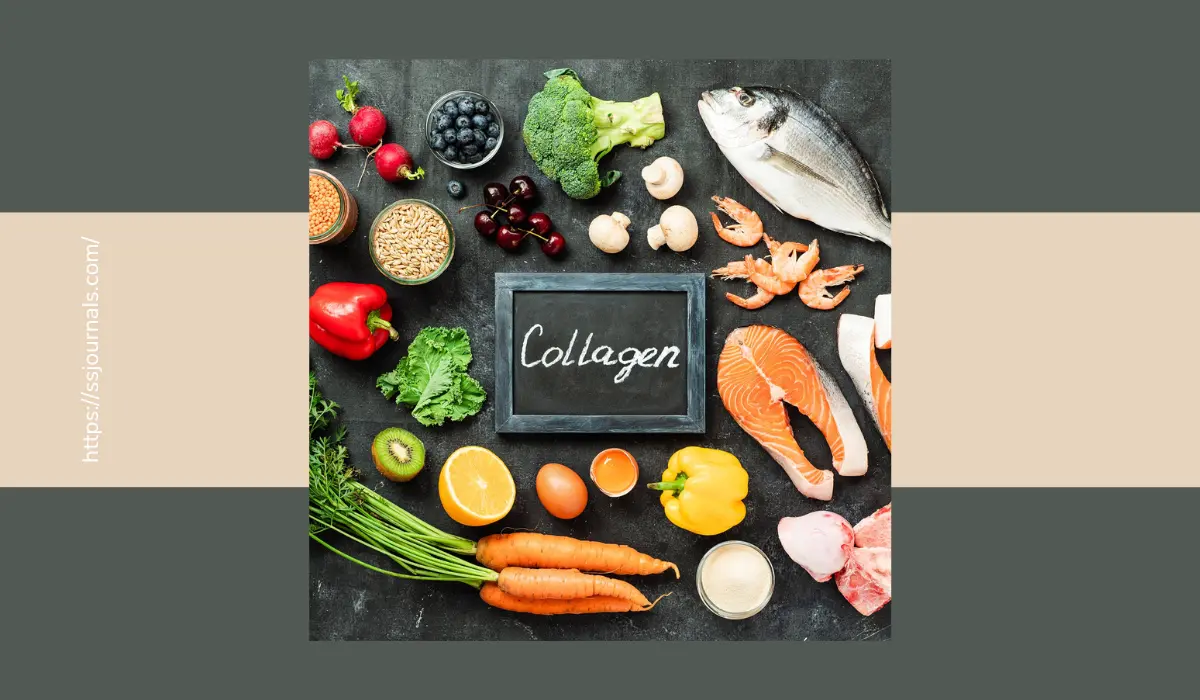Collagen is the most abundant protein in the human body and is a major component of connective tissues like skin, bones, tendons, and ligaments. It provides structure and elasticity to these tissues.
Collagen production starts declining around age 25 leading to common signs of aging like wrinkles and joint pain. Eating foods high in collagen may help counteract decreasing collagen levels. This article will explore what collagen is, top collagen-rich foods, and the benefits of consuming more collagen.
What Is Collagen?

Collagen is a fibrous protein made up of amino acids like glycine, proline, hydroxyproline, and arginine. It makes up about 30% of the total protein content in the human body. There are at least 16 different types of collagen, but 90% consist of types I, II, and III.
Collagen forms strong fibrous networks that provide structure, stability, and strength to connective tissues throughout the body. Some of collagen’s key functions include:
- Giving skin its elasticity, firmness, and strength
- Providing cushioning for joints and bones
- Forming the underlying matrix of tissues like tendons, ligaments, blood vessels, teeth, corneas
- Aiding in tissue regeneration and healing
- Supporting muscle mass
- Promoting cardiovascular health
- Strengthening the digestive system
Our bodies produce collagen from scratch and also obtain it from dietary sources. As we age, collagen production begins decreasing leading to structural deterioration of connective tissues. Eating collagen-rich foods can help compensate for this decline.
Top 10 Foods High In Collagen
Here are 10 of the best dietary sources of collagen:
1. Bone broth – Simmering bones in water extracts collagen along with other nutrients like amino acids, minerals, and glycosaminoglycans.
2. Chicken skin – Chicken skin is very high in collagen types I and III. About 40% of its protein content is made of collagen.
3. Beef – Beef cuts contain collagen types I and III from tendons, ligaments, bones, and cartilage. Opt for grass-fed beef.
4. Pork skin – The skin or “rinds” on pork are full of collagen from being attached to underlying tissues.
5. Fish – Fish like salmon and tuna contain collagen types I and V that are abundant in skin and connective tissues.
6. Eggs – Egg whites and yolks are a good source of proline and other amino acids needed for collagen synthesis.
7. Bone broth powder – This convenient powder makes it easy to add collagen from bone broth to smoothies, baked goods, etc.
8. Gelatin – Derived from collagen-rich animal parts, gelatin can be used to make jello or added when cooking.
9. Berries – Berries like blackberries and raspberries contain collagen-supporting antioxidants like vitamin C.
10. Citrus fruits – Fruits like oranges, grapefruit, and lemons are packed with vitamin C to boost collagen formation.
Benefits Of Eating More Collagen
Increasing your intake of collagen-rich foods can provide many health benefits:
- Reduces signs of skin aging like wrinkles, dryness, and sagging
- Improves skin hydration, thickness, elasticity, and smoothness
- Strengthens brittle or weak nails
- Reduces joint pain and degeneration from osteoarthritis
- Improves flexibility and mobility
- Speeds up recovery of muscle and tendon injuries
- Strengthens bones and prevents osteoporosis
- Supports gut integrity and healing of leaky gut
- Improves heart health by supporting arteries
- May promote liver health
- Helps control blood sugar levels
- Improves sleep quality
- Supports weight management
Overall, a collagen-rich diet leads to the better joint, bone, skin, and muscle health. It may also aid tissue repair, heart health, gut health, and metabolism.
Conclusion
Collagen is a vital structural protein that keeps connective tissues throughout the body strong and flexible. Consuming collagen-rich foods like bone broth, chicken skin, beef, fish and eggs can help counteract decreasing collagen levels from aging.
A diet higher in collagen promotes younger-looking skin, eases joint pain, builds stronger bones, and provides many other health benefits. There are also convenient supplemental forms like collagen powders to help boost your daily intake. Taking steps to increase collagen levels through diet and supplementation can go a long way in maintaining youth, mobility and vitality as you age.

